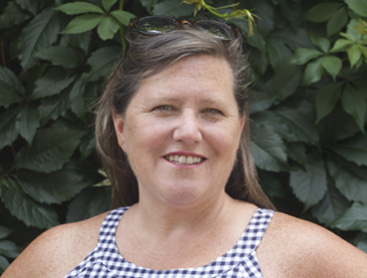Anvil journal of theology and mission
The doors that the arts open
by Shannon Hopkins
Pause for a moment and think: when was the last time you felt wonder or awe? Hold an image of what inspired that feeling in you in your mind. Remember the sensations you experienced.
It is said that “a picture is worth a thousand words and an experience is worth a thousand pictures”. There is something about both image and experience that helps us to transcend words and reason and it is why I have been asking questions about the role of creativity and the arts in a post-Christendom society for a long time.
I believe that art is important because it helps us embrace mystery and opens up room for questions and democratising power.
For centuries the church was the patron of the arts and it hosted the parties and the unveilings, it directed the conversations. It told the painter what to paint and then people talked about it, interpreted it. For a number of reasons, which I don’t have space to go into here, this connection has been largely lost and the church struggles to know what to do with art and artists at best and is suspicious at worst.
I often find in the church context that people focus on reason and certainty even though we know mystery is at the heart of our spiritual life. I believe that art is a vehicle that holds our questions, challenges and feelings. It opens us up and can ignite a sense of wonder. When that happens, it isn’t just a personal endeavour; I have seen it creates new openings between people.
The projects Wabi Sabi, where I worked with others to turn a house into an interactive art installation/experience about love, and Doxology, where my friend Rob Pepper redrew the Jesus narrative and we invited others to respond to what they saw in his work with a focus on opening up a dialogue instead of debate about spirituality, are two of the ways I have explored the arts as an avenue for mission in a secular age. Both are experiences that demonstrated the personal and communal power of the arts.
The arts haven’t gone away, they’ve just largely grown outside the church walls. Eyes and ears to see beauty, to attend to poverty, to seek justice – these strong, recurrent biblical themes are often missing from our public discussions about moral values but they are alive in the communities of artists and cultural creatives around the world.
In the last 20 years the art world has boomed, some would even say exploded. It also has become more accessible to the general public and become a more integrated part of society. Does that matter? I think it does.
Some say art has become religion for the atheists and it shouldn’t surprise us why.
In the introduction to Speaking of Faith, Krista Tippett makes the point that spiritual questions don’t go away, nor does a sense of wonder and mystery cease, in the absence of a belief in God.1 Spiritual questions demand answers. As the church has withdrawn from engaging people in spiritual questions, it could be argued that the art world has become a one of the primary platforms for investigating spiritual inquiries. Artists, mystics and poets of our day wrestle in the open public spaces with questions of eternity, faith, hope and justice – trying to make sense of the world and bring meaning to their lives.
The arts are a gift in many ways: they offer an alternative economy, an alternative way of assessing cultural worth; they engage, question and challenge us. Just as we’re realising there are other ways to define worth than by wealth, we’re discovering there are other forms of intelligence – for example emotional intelligence and creative intelligence. I believe the arts have the capacity to open up a space for a more complete perspective of our world.
The beauty of the arts, and one not to be missed out on, is that it has the wondrous ability to ignite our imagination. If we are going to imagine a different world and bring it into being, the arts might just be our best ally.
About the author

Shannon Hopkins is a social entrepreneur, church planter and consultant for ministry in contemporary culture. She is the founder of RootedGood, which works on multiple projects that range from arts and social justice to social enterprise.
More from this issue
Notes
1 Krista Tippett, Speaking of Faith: Why Religion Matters – and How to Talk About It (London: Penguin, 2008).